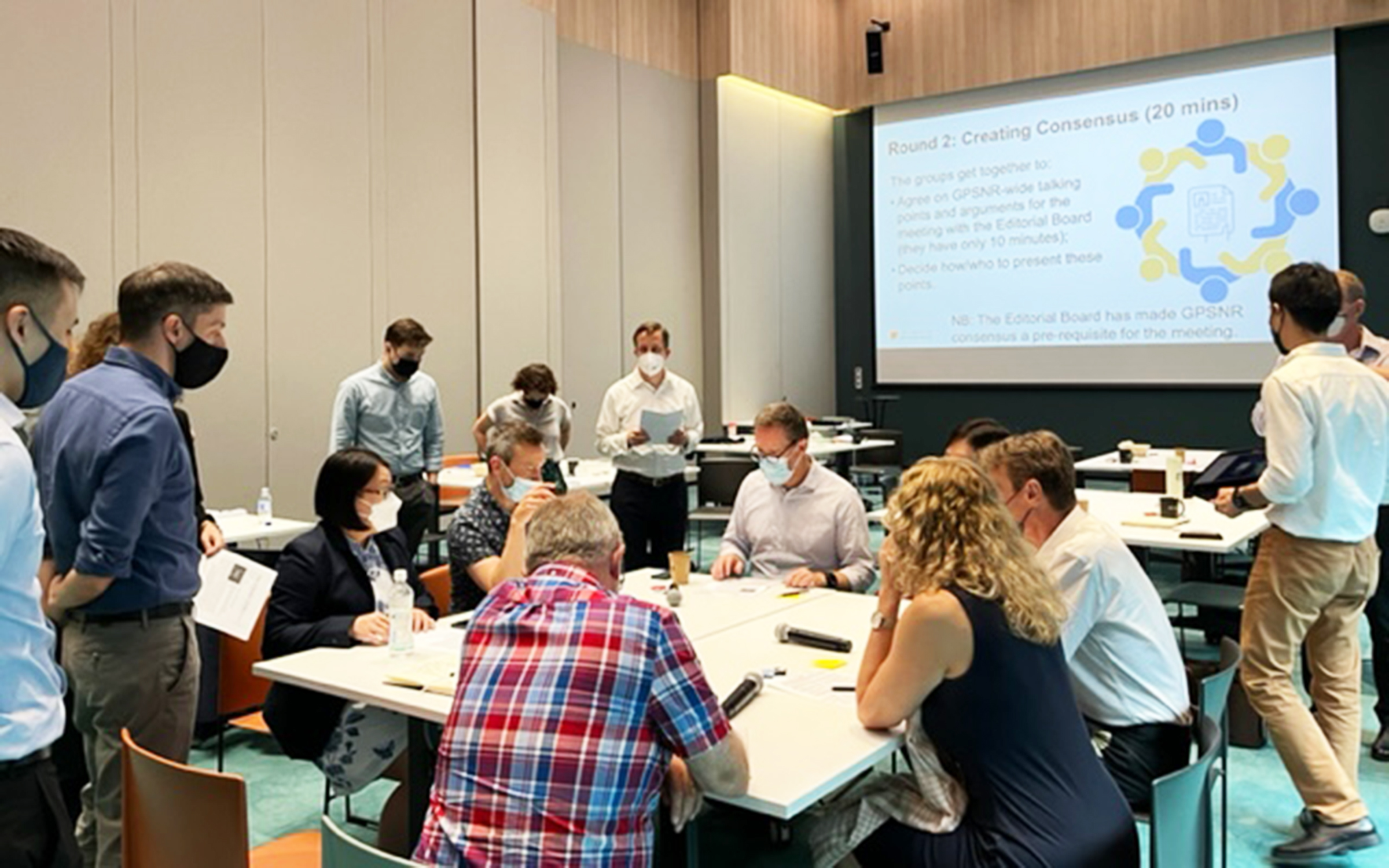Why sustainability needs Collective Action – an emerging success story in natural rubber supply chains

A guest interview with Bani Bains, Communications Manager at the Global Platform for Sustainable Natural Rubber (GPSNR), for the B20 Collective Action Hub.
What does your initiative seek to achieve, and how?
At the Global Platform for Sustainable Natural Rubber, of which the Basel Institute on Governance is an NGO member, stakeholders representing all parts of the natural rubber industry come together to find common ground over a similar concern: making their diverse supply chains more sustainable, equitable and fair.
This is not a straightforward process. Supply chains are like living, breathing organisms – working in complicated, intricate ways to remain high functioning and deliver quality products. And while the heart and the brain may not always see eye-to-eye, one cannot do its job without the other.
So building consensus takes time, effort and intent across various stakeholder categories – which is why the Collective Action approach is so vital. We hope our story so far demonstrates that investing time and effort in Collective Action brings positive results for all involved.
How do you go about bringing the natural rubber sector together?
Few people know that six million smallholder farmers produce almost 90 percent of the world’s natural rubber. These are typically based in South-East Asia, with Thailand, Indonesia, Vietnam and Malaysia being the biggest producers. Other parts of the world – like India, Sri Lanka, Brazil and Côte d’Ivoire – also produce the commodity.
In brief, 70 percent of the total rubber produced goes to the tyre industry, which then services other downstream users. Additionally, both producers and processors play a big part in ensuring that the rubber is in the form that is best suited for the various end products.
Our aim at the GPSNR is to operationalise something that is truly multistakeholder and represents everyone in the supply chain in our joint efforts to drive sustainability and equity.
GPSNR is therefore governed by its members’ General Assembly and by an elected executive committee. The executive committee comprises 15 members representing the five membership categories with voting rights. Day-to-day operations are handled by a secretariat headquartered in Singapore, hosted by the World Business Council for Sustainable Development. Members participate in GPSNR’s work through working groups.
What are some key successes so far?
In about three years of its existence, GPSNR has over 200 members, representing more than 50 percent of global natural rubber demand. All member companies are required to align their natural rubber procurement policies with a robust policy framework.
We see it as a success in itself that so many diverse representatives from different parts of the supply chain are voluntarily signing up and committing themselves publicly to robust standards. They see the benefits of collaborating with industry peers and riding the wave of change to stay ahead of both industry and civil society’s expectations on sustainability. ZSL, a member that represents the civil society category at GPSNR executive committee, conveys why they participate so actively in this LinkedIn article.
Last year, members also agreed on a set of reporting requirements and will start the reporting process soon. This will create one core standard for reporting on sustainability data across the industry.
This year, the platform recently approved a shared responsibility framework that ensures that the costs of negative externalities are distributed equitably across the value chain. This approach brings the entire industry closer to addressing inequity in a systemic, long-term approach, with well-defined goals and milestones.
How do you go about building consensus?
All of these tangible successes, and several others to come, are possible only with some intangible ones: successes that happen when opposing sides find common ground, or when different categories of stakeholders can trust and empathise with each other fully.
This trust comes through a process of deliberations and debates and is not free of challenges – at GPSNR, we work at this every single day. It requires commitment across members, but most importantly, it requires the space to disagree and voice opinions freely. This space for disagreement as a means to find collaborative solutions is the greatest strength of GPSNR.
True to the concept of Collective Action, it makes our initiative truly multi-stakeholder and inclusive.
Are there any downsides to the approach?
Our focus on deliberation and collaboration makes processes slower. Being slow and steady is no bad thing in itself. Rushed attempts to impose top-down standards on a fragmented industry invariably fail.
But as members debate the wording of each question in the reporting requirements, for instance, the world is asking bigger questions of the natural rubber industry, like when we will finally be able to feel confident that their cars and tyres use only rubber sourced from a fully sustainable supply chain.
The key is to strike a balance between gaining buy-in from all stakeholders and being efficient.
What practical actions do you take to build trust between stakeholders?
In the aftermath of the pandemic, finding consensus might be slightly easier, especially as stakeholders can meet in person. At trust-building workshops facilitated by the Basel Institute last month, member participants found certainty in the fact that even if they are on opposing sides of the table sometimes, they are all working towards the same goal of sustainability and equity.
Since building trust is a vital element of all successful Collective Action initiatives, whether these focus primarily on sustainability or integrity, we look forward to learning from others in the Basel Institute’s wider network.
Learn more
- Find out more about the GPSNR.
- Explore resources and tools on Collective Action as a way to bring stakeholders together to address shared challenges of corruption and sustainability in business.
- Learn about the Basel Institute's Green Corruption programme, which applies anti-corruption tools and approaches to problems of sustainability and environmental conservation.


